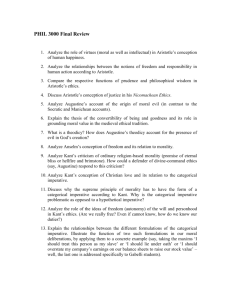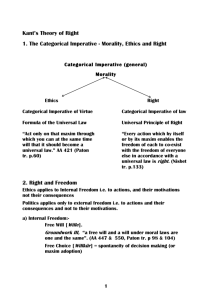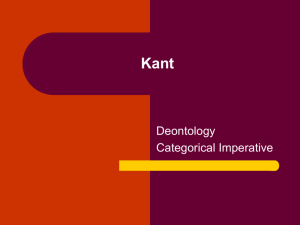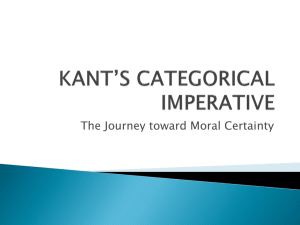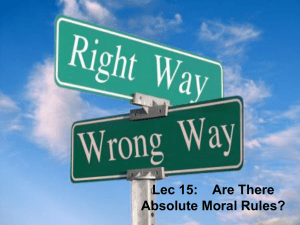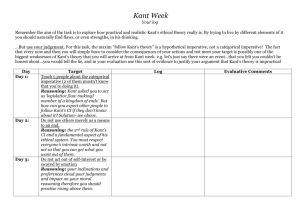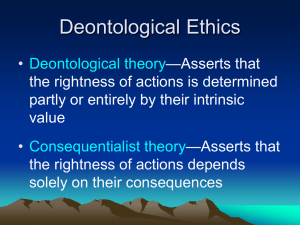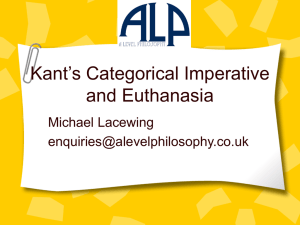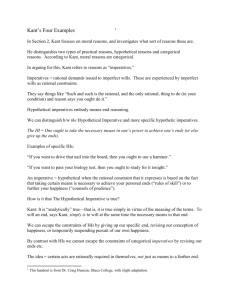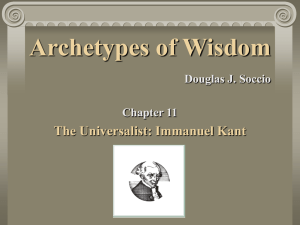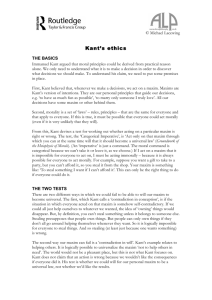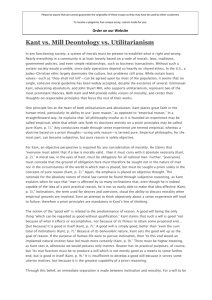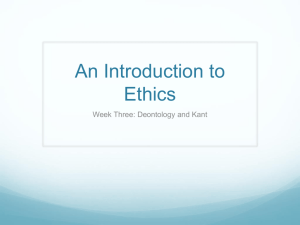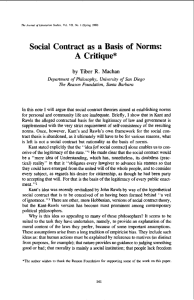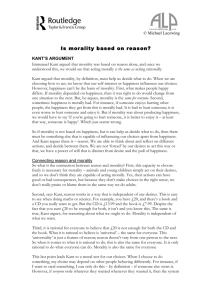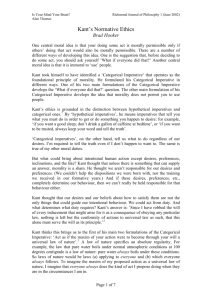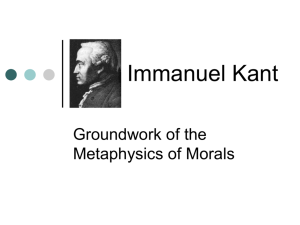Viewing Guide – P1010
advertisement
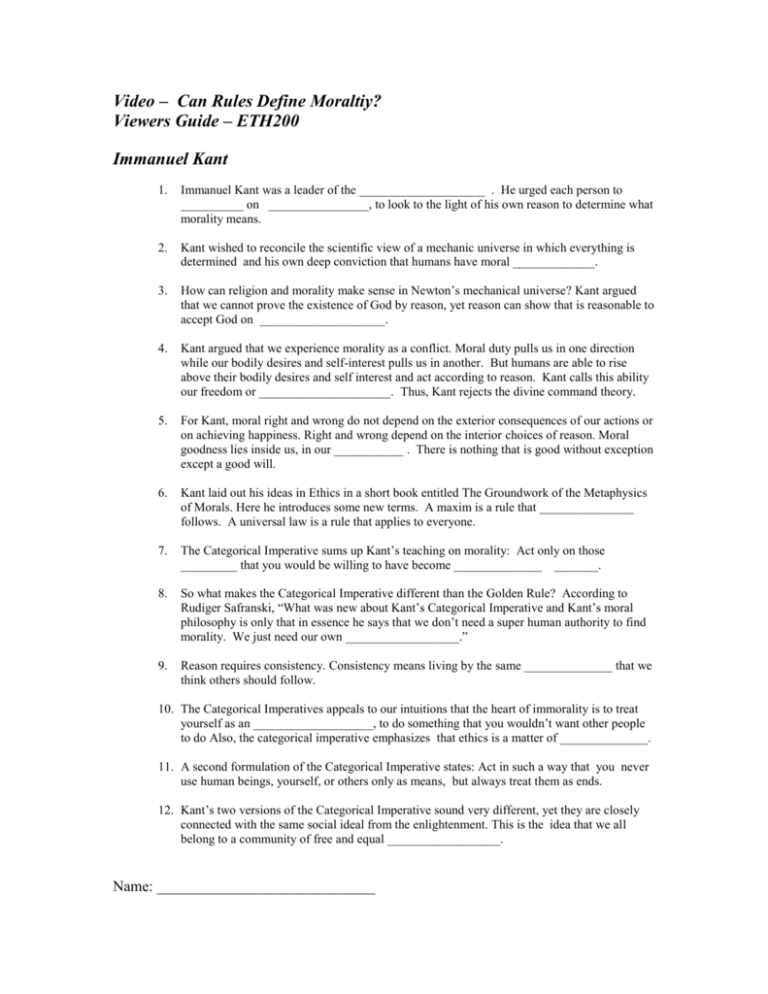
Video – Can Rules Define Moraltiy? Viewers Guide – ETH200 Immanuel Kant 1. Immanuel Kant was a leader of the ____________________ . He urged each person to __________ on ________________, to look to the light of his own reason to determine what morality means. 2. Kant wished to reconcile the scientific view of a mechanic universe in which everything is determined and his own deep conviction that humans have moral _____________. 3. How can religion and morality make sense in Newton’s mechanical universe? Kant argued that we cannot prove the existence of God by reason, yet reason can show that is reasonable to accept God on ____________________. 4. Kant argued that we experience morality as a conflict. Moral duty pulls us in one direction while our bodily desires and self-interest pulls us in another. But humans are able to rise above their bodily desires and self interest and act according to reason. Kant calls this ability our freedom or _____________________. Thus, Kant rejects the divine command theory. 5. For Kant, moral right and wrong do not depend on the exterior consequences of our actions or on achieving happiness. Right and wrong depend on the interior choices of reason. Moral goodness lies inside us, in our ___________ . There is nothing that is good without exception except a good will. 6. Kant laid out his ideas in Ethics in a short book entitled The Groundwork of the Metaphysics of Morals. Here he introduces some new terms. A maxim is a rule that _______________ follows. A universal law is a rule that applies to everyone. 7. The Categorical Imperative sums up Kant’s teaching on morality: Act only on those _________ that you would be willing to have become ______________ _______. 8. So what makes the Categorical Imperative different than the Golden Rule? According to Rudiger Safranski, “What was new about Kant’s Categorical Imperative and Kant’s moral philosophy is only that in essence he says that we don’t need a super human authority to find morality. We just need our own __________________.” 9. Reason requires consistency. Consistency means living by the same ______________ that we think others should follow. 10. The Categorical Imperatives appeals to our intuitions that the heart of immorality is to treat yourself as an ___________________, to do something that you wouldn’t want other people to do Also, the categorical imperative emphasizes that ethics is a matter of ______________. 11. A second formulation of the Categorical Imperative states: Act in such a way that you never use human beings, yourself, or others only as means, but always treat them as ends. 12. Kant’s two versions of the Categorical Imperative sound very different, yet they are closely connected with the same social ideal from the enlightenment. This is the idea that we all belong to a community of free and equal __________________. Name: _____________________________

